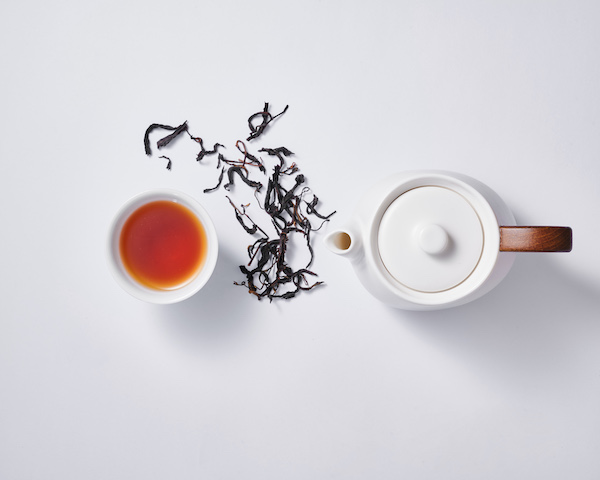Are you wondering what black tea is and why it's so popular worldwide? Known for its rich flavor and interesting history, black tea has attracted tea lovers for many years. This drink is made from the leaves of the Camellia sinensis, which undergoes a special oxidation process that gives it a strong taste and dark color.
Each type of black tea provides a unique tasting experience that showcases the local environment and cultural traditions of its region. From the bold Assam to the delicate Darjeeling, black tea offers a diverse range of flavors and stories.
What Is Black Tea Made of?
Black tea’s multifaceted nature makes it a timeless favorite around the world. To truly learn what black tea is, one must delve into its composition and the regions where it is cultivated. The black tea produced in Taiwan showcases an array of flavors and aromas, influenced by the unique climate and soil conditions of different tea-growing areas.
Ruby Black Tea: One of Taiwan's most famous black teas. Grown in the picturesque Sun Moon Lake region, it is characterized by its sweet, malty flavor and bright reddish-brown color. The elevation and climatic conditions of the area contribute to its unique taste profile, which often includes notes of mint and cinnamon. The production process for Sun Moon Lake black tea emphasizes careful processing to maintain its high quality and flavor.
Honey Fragrance Black Tea: Another remarkable variety from Taiwan, Honey Fragrance black tea is named for its distinctive floral and sweet aroma. The defining characteristic of honey-scented black tea is its unique cultivation process. Small green leafhoppers nibble on the tea leaves, triggering a chemical reaction that produces a distinctive honey-like fruity aroma, giving the tea its signature fragrance. The flavor profile is often described as smooth and sweet, making it a favorite among tea enthusiasts. The meticulous cultivation and processing techniques ensure that the natural sweetness and aroma of the tea are preserved.
Small-Leaf Black Tea: Small-leaf black teas are crafted from finely chopped, smaller leaves, providing a refined and nuanced flavor experience for those who enjoy a smoother, more delicate cup.
In Taiwan, small-leaf black teas are primarily made from Qingxin Oolong. After fermentation, these teas release a fruity honey aroma and offer a subtle, delicate flavor. They’re perfect for those who prefer a lighter tea that delivers rich aromas and a satisfying taste without being too strong or overpowering.
What Is Black Tea Good for?
Black tea is beneficial to both mind and body. Imagine a cup that awakens your senses while simultaneously providing a calming experience—thanks to the perfect harmony of caffeine and L-theanine. The combination of the elements sharpens focus while keeping the mind calm, making it perfect for productivity or winding down after a busy day.
In addition, packed with antioxidants like theaflavins, each sip works to support the body’s natural defenses by combating free radicals. These antioxidants help maintain cellular health and can even enhance metabolic functions, giving black tea its well-earned reputation as more than just a delicious drink.
Why is it called Black Tea?
The name "black tea" originates from the dark color of its dried leaves and the deep reddish-brown hue of the brewed tea. Unlike green or oolong teas, which undergo less oxidation, black tea is fully oxidized, resulting in its distinctive dark color and rich taste.In China, it is known as "hong cha" (红茶), or "red tea," which emphasizes its brewed color.
Interestly, the term"black tea" gained popularity in the West during the colonial era when Europeans first encountered its robust, fully oxidized flavor profile.The hard water prevalent in Europe, high in minerals like calcium and magnesium, produced a brew that appeared nearly black. Western traders adopted this term to distinguish it from other tea varieties, and it has since become a global standard.
Despite differing names across cultures, black tea is universally celebrated for its strong flavors and historical significance.
